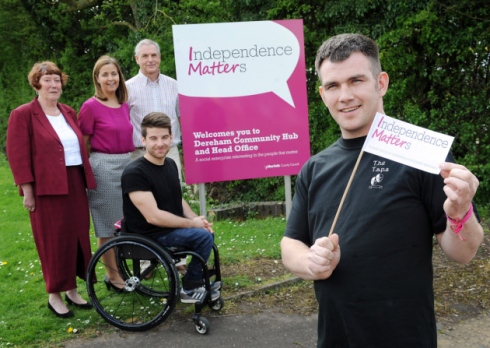Home
About Us
Page 2
1) The understanding of how autoimmunity can cause rheumatic diseases in animal models and defined clinical populations, as well as the identification of environmental factors that can somehow exacerbate the develop of rheumatic disorders.
|
|
2) A thorough understanding of the genetic basis of rheumatic disorders along with their signs and symptoms, and clinical presentations.
3) A thorough understanding of how rheumatic diseases can impact underlying organs.
4) The identification of new risk factors and biomarkers that could potentially help the development of technical approaches that can predict a person's susceptibility to the said disorders.
The NIH and the NIAMS is set to administer a total of $1,800,000 to support the Rheumatic Diseases Research Core Centers Project.
Individuals investigators and researchers will be deemed eligible to participate in the Rheumatic Diseases Research Core Centers Project if they are representing any of the following:
a) Higher Education Institutions such as Public/State Controlled Institutions of Higher Education and Private Institutions of Higher Education
b) Nonprofit organizations other than institutions of higher education
c) For-Profit Organizations such as Small Businesses
d) State Governments, County Governments, City or Township Governments, Special District Governments, Indian/Native American Tribal Governments (Federally Recognized), and Indian/Native American Tribal Governments (Other than Federally Recognized)
e) Independent School Districts, Public Housing Authorities/Indian Housing Authorities, Native American Tribal Organizations (other than Federally recognized tribal governments), Faith-based or Community-based Organizations, and Regional Organizations.
Rheumatic Diseases Research Core Centers Project
Back to Page 1
About The Author Michael Saunders is an editor of TopGovernmentGrants.com one the the most comprehensive Websites offering information on government grants and federal government programs. He also maintains Websites providing resources on environmental grants and grants for youth programs. |
Additional Resources
category - Health Grants
Genomic Advances to Wound Repair
Small Business Innovation Research Phase IIB Bridge Awards
Developing and Strengthening Services and Systems that Support Family Cohesion and Respond to the Separation of Children in Democratic Republic of Congo
Cancer Research Network: a Research Resource within Health Care Delivery System
Follow @topgovtgrant
Social Entrepreneurship
Spotlight
Dereham Day Services Center Celebrates New “Social Enterprise” Model

Independence Matters, the largest council-owned community interest and day services company, celebrates the success of its new social enterprise model that boost its care and support services to more than 1,450 people across Norfolk.
